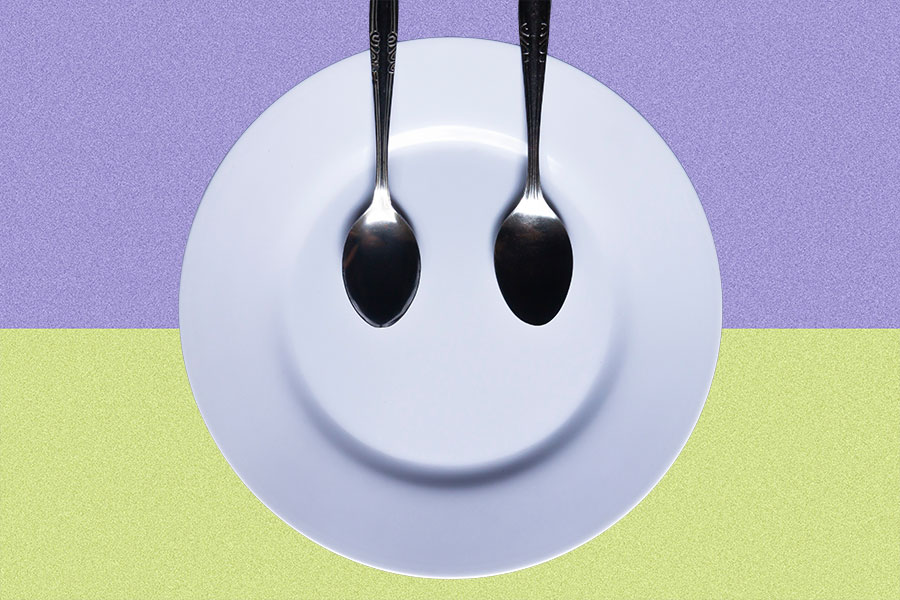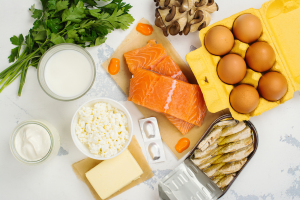10 mood-boosting foods to help you feel happier

There is increasing research on the foods we eat can affect our mood and mental well-being. In general, plant-based foods have been linked to a reduced risk of depression and anxiety, particularly fruit, vegetables, whole grains, beans, nuts, and seeds.
Nutrient deficiencies such as lack of magnesium or omega-3 can affect our mood. Inflammatory foods such as fried foods and processed meat can contribute to neuroinflammation which can play a role in dementia as well as anxiety and depression.
With that, in mind, we’ve hit up Rohini Bajekal – a nutritionist ad webinar host at Plant-Based Health Professionals – for the mood-boosting foods (which to avoid) and how nutrition can help boost mental health.
Matcha
Matcha is a high-grade powdered Japanese green tea powder made from finely ground, dried tea leaves. The amino acid, L-theanine (L-THE) found in abundance in matcha is associated with a number of health benefits, including improvements in mood and a reduction of stress and anxiety-like symptoms. For those who find that coffee makes them jittery, it is worth trying matcha, as L-theanine seems to have a synergistic effect with caffeine. Enjoy with oat milk for a delicious morning pick-me-up.
Tofu

Tryptophan is an amino acid that is readily available in plant foods such as edamame, tofu, tempeh, nuts and seeds, oats, quinoa, broccoli, dark leafy greens, and green peas. Tofu is delicious in stir-fries, salad bowls, and curries.
Sweet potatoes

Complex carbohydrates such as sweet potatoes likely increase serotonin production. As serotonin is also the precursor to melatonin, our sleep hormone, eating complex carbs may also help improve your sleep, which in turn can improve your overall mood. Enjoy a baked sweet potato with guacamole or add sweet potato to your soups and stews.
Kimchi

Probiotic-rich foods such as kimchi, a fermented Korean cabbage, are rich in probiotics, gut-loving good bacteria. Studies on probiotic-rich foods such as sauerkraut and kimchi suggest that those who eat these foods regularly improve their anxiety levels, perception of stress, and overall mental well-being. Kimchi is delicious and added to a grain bowl or stir-fried.
Turmeric

This powerful yellow spice has been shown to benefit brain health, reduce depression, decrease inflammation, and help with new brain cell growth. Pair it with black pepper (which contains the compound piperine) to improve absorption. It tastes delicious in lentil dhals, stews, soups, and even in soya milk lattes.
Dark chocolate
Dark chocolate does have health benefits as a mood-boosting food but it is best enjoyed in smaller amounts – a couple of squares. If you are sensitive to caffeine, avoid eating it too late in the evening. Choose one with a higher cacao content (at least 70%) as these are lower in sugar. Flavanoids, plant nutrients found in many foods, are particularly abundant in dark chocolate and studies show that these may benefit brain and heart function. Dark chocolate is also a source of magnesium, iron, and other antioxidants.
Walnuts

Walnuts are rich in anti-inflammatory omega-3 fats which are heart and brain-healthy. Omega-3 fats are known to improve mental health and related diseases such as depression. Sprinkle a serving of 6 walnut halves over porridge, plant-based yogurt, or a fresh green salad to reap the benefits.
Sunbathed mushrooms

Did you know that mushrooms can produce their own vitamin D when ‘sunbathed?’ This means exposing them to sunlight, either outside on a sunny day or on a windowsill with the window open to enable the UV rays to reach them. Mushrooms can also be bought ‘pre-sunbathed.’ Eating sunbathed mushrooms is a great way of getting a little vitamin D boost, which is important for the functioning of our immune system, our mood, and our energy levels. However, regardless of whether one eats animal products or is plant-based, we are unlikely to consume enough dietary vitamin D and a supplement should ideally be taken, especially in the winter months as per government recommendations. Some people may need more vitamin D such as those with darker skin or with certain medical conditions.
Saffron

In a clinical trial, saffron has been shown to help significantly reduce depressive symptoms compared to a placebo. Saffron has also been shown to perform comparably to several antidepressant drugs in several studies, although it must be noted that these are small studies looking at mild-to-moderate depression. Try making saffron rice or saffron-infused rice pudding.
Brazil nuts

Brazil nuts are an excellent source of selenium, a micronutrient that has been linked to a reduction in depression. Low selenium intake is also associated with a poorer mood. Enjoy 1-2 Brazil nuts every day to get the benefits.


















